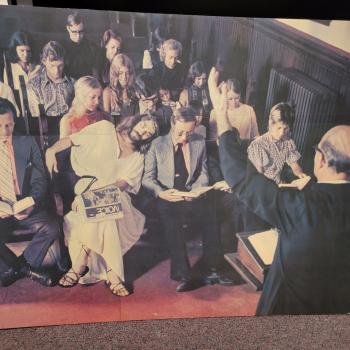This is now the third gargantuan and well researched biographies I’ve read over this summer written by Walter Isaacson. This one clocks in, counting notes etc. at 700 pages, and involves a ton of explanation of relativity theory, E=MC squared etc. It is not for the scientifically challenged, even as clearly as Walter writes. This biopic doesn’t have the flair or eloquence of the Ben Franklin one, nor the imaginative description of artistic technique as the Da Vinci biopic, but it does just as good a job at revealing the man behind the legend and myth. And in the case of Einstein, there have been lots of myths. For example, the myth that he failed math along the way in school. Absolutely not true. Or the legend that he let his chauffeur give his relativity lecture in Illinois so often had his driver heard that same lecture. If one asks what all three of these ‘great men’ have in common, one has to say that to use an old Southern phrase they were all hound dogs, when it came to sparking those they should not have had sexual relationships with, relationships outside the context of marriage. Even more strangely in the case of Einstein, he divorced his first wife and married his first cousin, and odd thing for a Jew to do, in view of Leviticus.
What kind of Jew was Albert Einstein? Not an observant one, in fact he was a Spinoza kind of Jew, believing more in a sort of pantheistic notion of God, a spirit which orders and inhabits all thing, than in the Yahweh of the Bible. Einstein did not believe God interfered in human affairs, or responded to prayers, his concepts were of a more Deistic God satisfied with setting up an orderly and sometimes beautiful universe. And yet this belief did indeed constantly inform his thinking, objecting to the Heisenberg uncertainty principle and to the basic ethos of quantum mechanics with his famous phrase “God does not play dice with the universe”. There was a larger design, and Einstein tried hard to come up with a unified field theory that explained the connections of all things. We will say a bit more about his religious beliefs in the next post.
Here it will be useful to summarize some of his more enduring and endearing traits. He was the quintessential absent minded professor. My old Bible teacher was at Princeton after WWII when Einstein was there and Dr. Boyd said that Einstein would come shambling into town with a to do list pinned to his sweater, because by the time he got there, so concentrated was he on his scientific thinking, that he would forget why he went to town. Secondly, there was a kindness and generosity, and even humility about the man. He was likable, not an arrogant intellectual. Thirdly, the man was a pacifist at heart, though he recognized the need for nations to be able to defend themselves against the likes of a Hitler. One of the things that constantly surprised me is how he became a celebrity— with hundreds of people meeting him at NY harbor when he first visited the U.S. or when he gave public lectures, often in German with a translator or faltering English, on subjects not one in ten in the audience could understand. His theories were splashed across the front pages of all the major newspapers in the U.S. My how times have changed. We prefer cartoons, political speculations, and entertainment news!
















